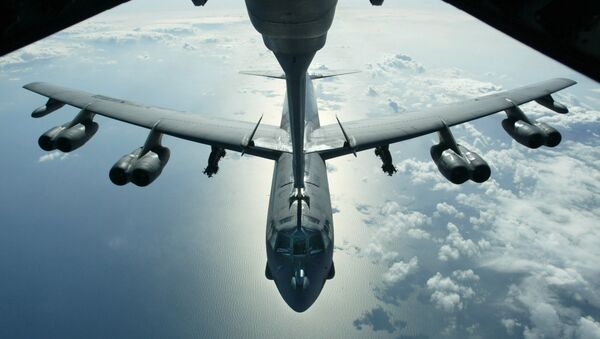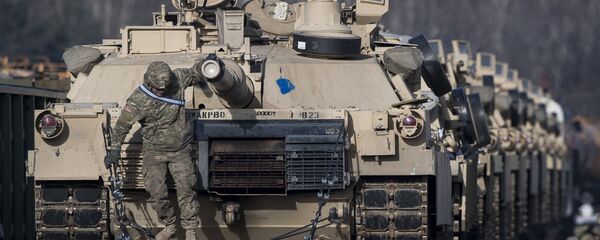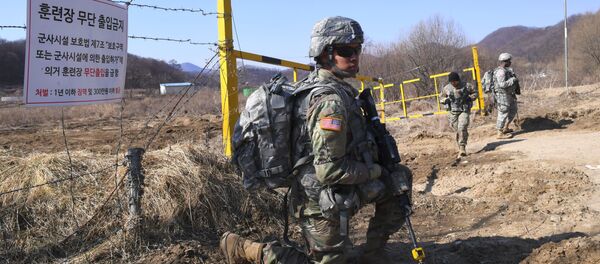Defense Secretary James Mattis unveiled the new doctrine with a speech at Johns Hopkins School for Advanced International Studies University last Friday.
Mattis said the primary focus of US national security had shifted from fighting terrorism to great power competition, primarily with China and Russia.
US INTENT TO CONTROL GLOBAL RESOURCES
The defense strategy focusing on Big Power competition is based on the two US strategic goals announced early in the post-Cold War era, University of California Emeritus Professor of Law Beau Grosscup observed.
The goals are "preventing the rise of a competing great power or combination of great powers [and] winning the competition with other industrial/post-industrial powers for strategic resources," he said.
The new strategy also gives the Department of Defense the justification to ask for and get new and expensive weapons systems, Grosscup pointed out.
The security strategy envisages the eventual need for the United States to fight and triumph in nuclear conflicts, Grosscup cautioned.
"Clearly the new doctrine is based on the desire to win strategic nuclear war: That has not been possible for the United States or Russia since 1956," he said.
The defense policy will also eliminate the distinction between conventional and tactical nuclear weapons so as to easily breach the historic – and cautionary – threshold between conventional war and nuclear war, the professor explained.
"The result is the increased likelihood of the ‘first use’ by the United States of tactical and strategic nuclear weapons, and a bigger percentage of the national budget for ‘war preparation,’" he predicted.
NDS OVER-EXTENDS US FORCES AROUND WORLD
Retired US Army officer and tactician Colonel Doug Macgregor warned that the new doctrine was likely to backfire because it gave the US armed forces vastly increased duties and missions to carry out around the world without acknowledging they lacked the resources to fulfill them.
"The strategic ends-means mismatch in US national military strategy persists thanks to appointees in the Departments of Defense and State who insist on extending the Obama-Bush policy of trying to police ever-expanding areas of the Eastern Hemisphere," he said.
However, US forces remained smaller, over-stretched, under-manned and increasingly antiquated, Macgregor commented.
"We need to economize, and turn over most regional defense missions to allies," he said.
The United States already committed significant military forces around the world in locations where it had no need to do so, Macgregor advised.
"In truth, we don't need to be present with military power in most of the areas where we are," he said.
President Donald Trump personally recognized this to be the case, Macgregor stated.
This mismatch between limited US military means and the ever-growing new responsibilities they were being called on to undertake had been developing for decades, Macgregor recalled.
"The ends-means mismatch was bad during most of the Cold War, became worse when we became the ‘sole superpower,’ and has now reached a breaking point," he said.
In addition, the United States was currently confronting two peer major regional powers in Russia and China and two wannabe-nuclear-armed smaller powers in Iran and North Korea, Macgregor concluded.





